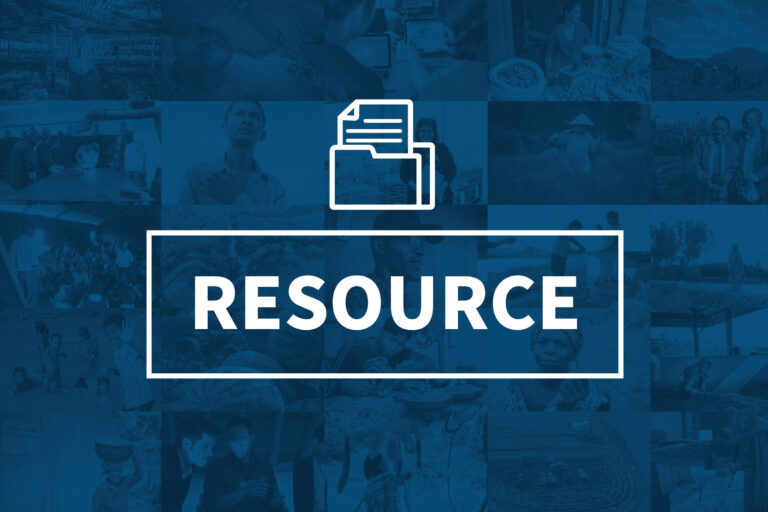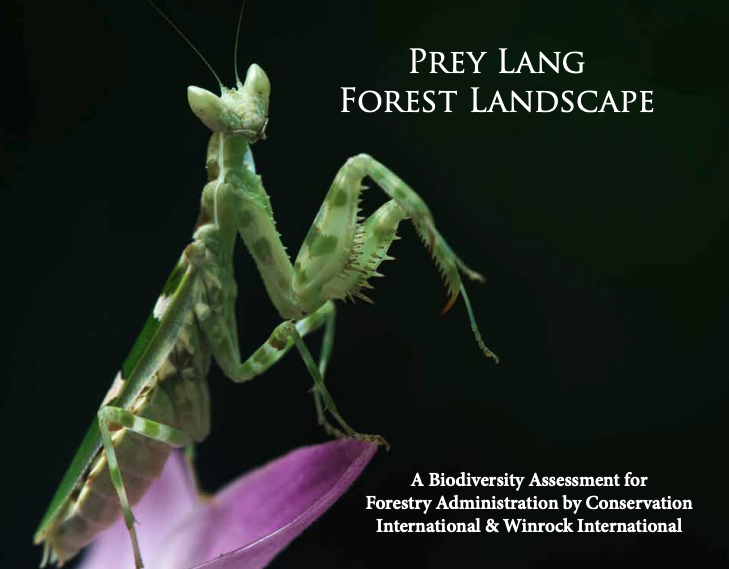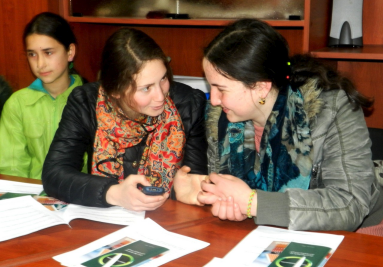Resources

Counter Trafficking in Persons Newsletter, Issue 4
The Counter Trafficking in Persons (CTIP) newsletter provides information on human trafficking and safe migration to migrant workers, youth, students and school children. Issue No. 4, July-September, 2014. CTIP Newsletter Issue 4 (Khmer)
Counter Trafficking in Persons Newsletter, Issue 6
The Counter Trafficking in Persons (CTIP) newsletter provides information on human trafficking and safe migration to migrant workers, youth, students and school children. Issue No. 6, January-March, 2015. CTIP Newsletter Issue 6 (Khmer)
Prey Lang Forest Landscape Biodiversity Assessment
Prey Lang is one of Cambodia’s most significant unprotected landscapes, and in 2014 the Forestry Administration of the Royal Government of Cambodia requested a survey be undertaken to assess the areas’ biodiversity. With funds from USAID, and in partnership with Winrock International, Conservation International coordinated a team of Cambodian and international specialists to survey the […]
CTIP Photo Essay About the Cambodian Repatriation Process
This presentation is a photo-essay about the repatriation process in Cambodia, produced by the Cambodia Counter Trafficking in Persons program (CTIP).
EC-LEDS Spring 2015 Newsletter
Can we reduce energy consumption by using energy efficient bulbs? Do we save energy when a TV set is on standby mode? Can packaging tape save energy when fixed on both sides of cracked glass? What consumes the most electricity in a home? In order to reduce thermal energy consumption is it necessary to ensure […]
Where is the Horizon?: Trafficked on Fishing Vessels
This booklet provides the testimonies of 10 Cambodian men trafficked to work on fishing vessels in slavery-like conditions, and provides information on the trial of the recruitment agency accused of exploiting and sending approximately 1,000 Cambodian men to work on fishing vessels in Thailand. The USAID-funded Cambodia Counter Trafficking in Persons program (CTIP II) has […]
Empowering Smallholders through Market-led Agriculture
Winrock International’s work with smallholder farmers in Asia, Africa and Latin America focuses on improving productivity and incomes. Using a market-driven approach, Winrock’s agriculture projects train farmers on best production techniques and entrepreneurial literacy, and link them to markets through collection centers and public-private partnerships. Our programs help increase the capacity of extension workers and […]
Household Energy for Improved Health & Livelihoods
About three billion people worldwide burn solid fuels for cooking and heating in open fires or traditional stoves. The resulting household air pollution causes over four million premature deaths annually and a range of chronic and acute health complications. Inefficient cookstoves contribute to climate change through greenhouse gas and black carbon emissions. Improved cookstoves use up […]
Hydropower to Increase Productivity & Economic Security
Winrock provides technical support to and mobilizes investments in mini-grids powered by micro and small hydropower independent power producers for emerging economies in Asia, Africa, and Eastern Europe. Winrock’s services include feasibility studies, capacity buidling, finance facilitation, impact assessments and policy advice.
